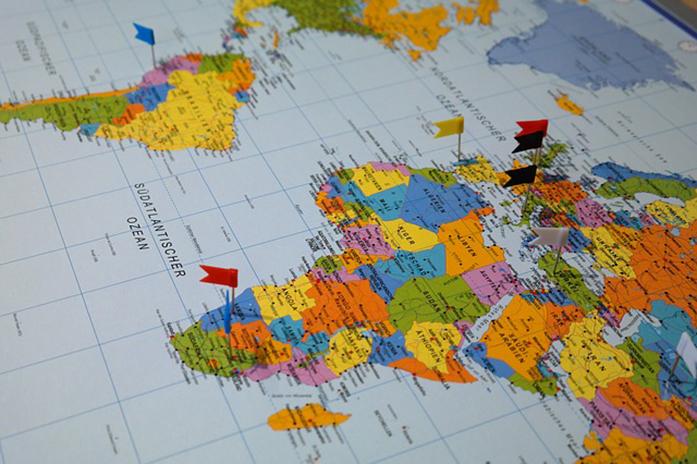The world continues to diversify, and in order to live in a healthy, democratic society together, people are needed to recognize, and bridge, the gaps between those who hold different religious beliefs, said one interfaith expert.
Eboo Patel, the founder and president of Interfaith Youth Core — a national nonprofit working to make interfaith cooperation a social norm — spoke in the IMU on Monday, saying there is a need to study the relationships among religious identities and how these affect decisions in people’s everyday lives.
Patel, who was a member of President Obama’s Inaugural Faith Council, said real diversity was not what he called “eggroll and samosa diversity.”
“Eggrolls and samosas, bring them on, they’re all good,” Patel said. “But diversity isn’t about differences in each other we like; it’s about differences we don’t like. What do you do when you live in a diverse democracy when the person next to you has different convictions then you do? When they’re allowed to freely express those convictions, what do you do?”
In order to build a healthy, religiously diverse democracy, Patel said, people have to agree to disagree.
“People have to be able to disagree on some of the fundamental things and work together on other fundamental things to build something beautiful in spite of their differences,” he said.
Mark Santillian, who went to high school with Patel, said he dealt with issues everyday related to individual’s beliefs at his job as a physician working with high-risk pregnancies at the University of Iowa Hospitals and Clinics.
“If we don’t focus on how faith is relevant to world views, we’re missing out on how to interact with these peoples of other faiths,” he said.
Santillian said each instance is different, and issues related to religious beliefs of patients must be handed individually.
“For example, if you have a Jehovah’s Witness, they wont accept a blood transfusion or anything like that, so if you need to perform a serious surgery on someone who identifies as a Jehovah’s Witness, you have to tailor your strategy to make sure your respecting that persons beliefs while still providing the best care possible,” Santillian said.
UI student Chris Thomas, who attended the event, said he thought Patel’s message was something people needed to hear.
“Religion is really diverse, and we can’t keep ourselves isolated from it,” Thomas said. “We need to learn interfaith skills in order to make our world work.”
Patel ended by saying how excited he was to be witnessing what he believed to be the birth of a new academic field of study.
“A hundred years ago, you didn’t have environmentalists; until you got a group of people together that decided the environment was worth studying, now you have a whole field,” he said. “That’s what we need to do for interfaith studies. We need to set the groundwork now in order to produce the critical mass of interfaith leaders we’ll need in the future in order to live in a healthy, religiously diverse democracy.”



